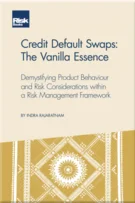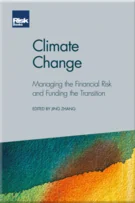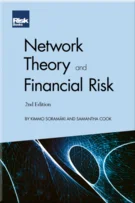Corporate social responsibility across industries: When and who can do well by doing good?
Andreas GF Hoepner and Pei-Shan Yu
Corporate social responsibility across industries: When and who can do well by doing good?
Linking ESG scenarios to real economy outcomes
Analysing ESG policy, market and portfolio construction considerations
Case Study 1: Applying ESG considerations to a pension fund’s equity portfolios
Case Study 2: Applying ESG concepts to wealth management portfolios
Managing environmental and climate transition risks and opportunities within portfolios
Considering physical climate risks and resilience in real asset investment
Case Study 3: Practical issues and considerations for implementing a Net Zero emissions strategy for asset owners
Evaluating social criteria in fundamental and thematic investment portfolios
Case Study 4: Defining impact investing for today‘s ethical investor – evaluating the efforts of Evangelisches Johannesstift
Developing governance and active ownership frameworks for investment analysis
Case Study 5: Applying active ownership and stewardship to a pension fund portfolio
Identifying ESG risks and opportunities in alternative investments
Reviewing the EU regulatory framework for ESG investors
Assessing data and disclosure challenges in ESG investing
Corporate social responsibility across industries: When and who can do well by doing good?
Reflecting on how ESG investing, accounting and governance have evolved over time
While much of the literature considers whether corporate social responsibility (CSR) pays, this chapter takes a more nuanced perspective, theoretically and empirically, by investigating when CSR pays and for whom? Theoretically, we develop two contingency perspectives. First, we extend previous work to argue that CSR’s impacts on corporate financial performance (CFP) are moderated by five factors: CSR form; firm characteristics; time; national framework; and industrial characteristics. Focusing on industrial characteristics, we theorise that differences in industries’ dependency on certain stakeholder groups, their proximity to the end-consumer, their potential for social and environmental damages, and their level of product/service differentiation moderate CSR’s value relevance.
Our second contingency perspective considers for whom CSR might pay. While previous research has almost exclusively viewed CSR’s value from a corporate perspective, we argue that stakeholders, government and investor perspectives are also relevant. Empirically, we analyse CSR’s value across 10 industry sectors from a corporate and investor aspect, respectively. We find that CSR has substantial value
Copyright Infopro Digital Limited. All rights reserved.
As outlined in our terms and conditions, https://www.infopro-digital.com/terms-and-conditions/subscriptions/ (point 2.4), printing is limited to a single copy.
If you would like to purchase additional rights please email info@risk.net
Copyright Infopro Digital Limited. All rights reserved.
You may share this content using our article tools. As outlined in our terms and conditions, https://www.infopro-digital.com/terms-and-conditions/subscriptions/ (clause 2.4), an Authorised User may only make one copy of the materials for their own personal use. You must also comply with the restrictions in clause 2.5.
If you would like to purchase additional rights please email info@risk.net









